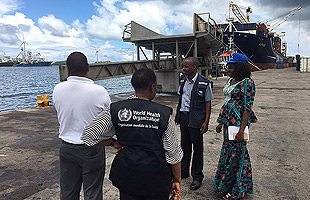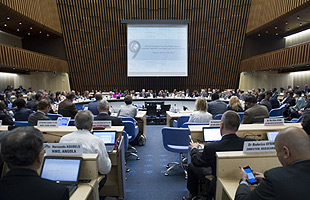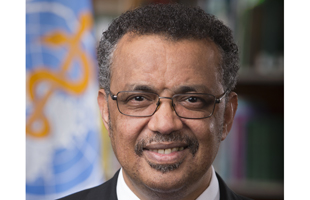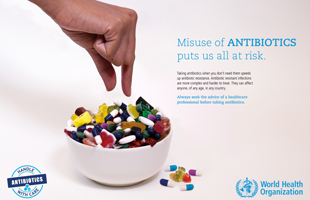Outbreaks and emergencies
Emergencies » Cholera » Food insecurity and famine » Nigeria » South Sudan » Syrian Arab Republic » Yemen »Director-General
"I envision a world in which everyone can live healthy, productive lives, regardless of who they are or where they live."
Highlights
-
WHO helps Kenya guard against Marburg Virus Disease
November 2017 – WHO is helping the Kenyan Ministry of Health guard against the spread of Marburg Virus Disease from neighbouring Uganda. Health authorities are strengthening preparedness measures in Trans Nzoia and West Pokot counties along the border with Uganda, where an outbreak was officially declared on 19 October.
-
Global Nutrition Summit 2017: Milan
November 2017 – Building upon the spirit and outcomes of the L'Aquila Food Security Initiative, the Milan Expo 2015, the 2nd International Conference on Nutrition (ICN2) and the G7 Summit in Taormina, the Nutrition for Growth Stakeholder Group will organize a day-long, high-level summit on nutrition and food for a healthier future which is co-facilitated and co-hosted by the Italian G7 Presidency, the City of Milan and Ministry of Health: the Milan Global Nutrition Summit.
-
Video: The eHealth journey in Latvia
October 2017 – The Ministry of Health of Latvia has created a national programme of electronic health (eHealth). As part of an ambitious, long-term national health reform agenda, the eHealth programme has been a key element of ensuring that Latvian people receive the right care in the right place and at the right time.
-
Using digital technology to strengthen public health services in Africa
October 2017 – With Africa currently undergoing a digital revolution, WHO and the International Telecommunications Union (ITU) signed a Cooperation Agreement, on using digital services to save lives and improve people’s health.
What we do
Health emergencies programme
Campaigns
Travel and health
Fact sheets
-
Legionellosis
Updated November 2017 -
Tuberculosis
Updated October 2017 -
Hepatitis C
Updated July 2017 -
Measles
Updated October 2017 -
Marburg virus disease
Updated October 2017
Events
-
Health and Climate Change at COP23
6–17 November 2017 -
Global Ministerial Conference on Ending TB in the Sustainable Development Era
16–17 November 2017 -
World Antibiotic Awareness Week 2017
13-19 November 2017
Sustainable Development Goals
Tweets from WHO
Tweets about "from:who"Malnutrition

"Globally, nearly 1/3 of people suffer from as a result of malnutrition: wasting, stunting, vitamin and mineral deficiency, overweight or obesity and diet-related non-communicable diseases."
Disease outbreak news
-
Plague – Madagascar
2 November 2017 -
Seychelles – Suspected Plague (Ex- Madagascar)
26 October 2017 -
Human infection with avian influenza A(H7N9) virus – China
26 October 2017 -
Marburg virus disease – Uganda
25 October 2017








